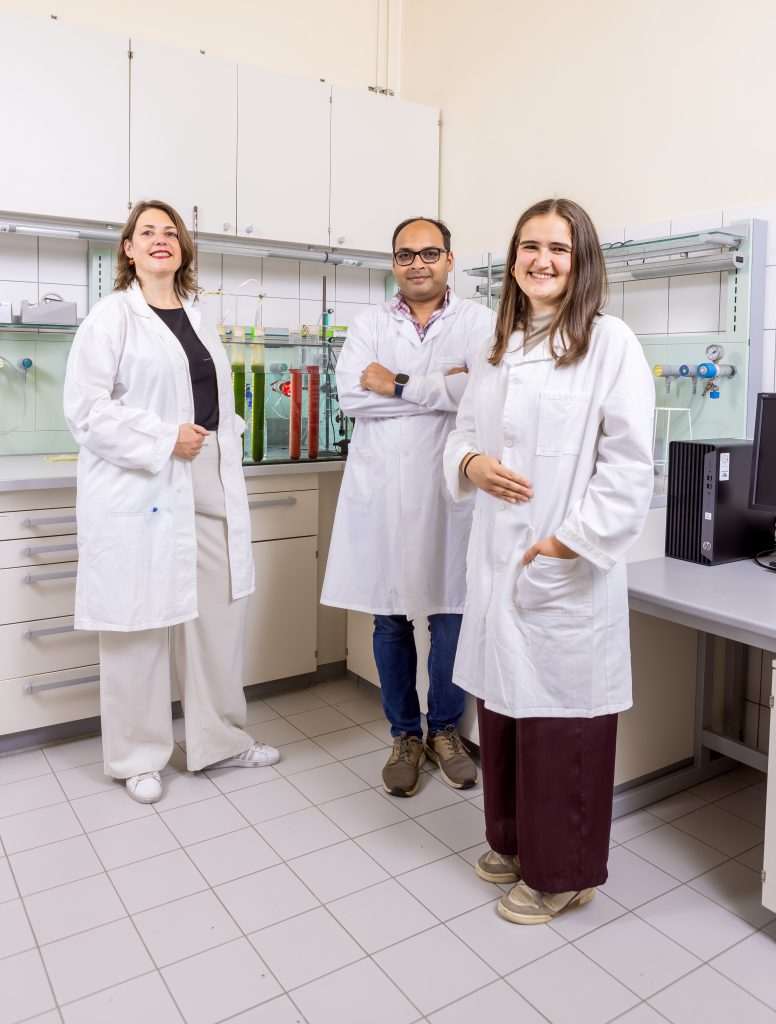In the REPLACER project, researchers are developing so-called hybrid living materials. It is about microbial proteins with a low carbon footprint, high acceptance and affordable costs – through the use of greenhouse gases. The long-term goal: sustainable production of feed proteins. Applied research, in other words, with options for later transfer. The project is coordinated by the Research and Transfer Center for Bioactive Matter (b-ACTmatter).

Scientific and technological innovations aimed at reducing greenhouse gases and plastic waste while finding a sustainable solution to the current feed production system are urgently needed to address climate change, plastic pollution and food insecurity,” says coordinator Dr. Rohan Karande. He recently started as a junior research group leader at the Research and Transfer Center for Bioactive Matter. “To tackle this, we are dedicated to developing and scaling up bioreactors to produce microbial biomass as a value-added feed product from carbon dioxide and methane,” he explains. “We hope to be able to test a pilot-scale prototype in three to four years.”